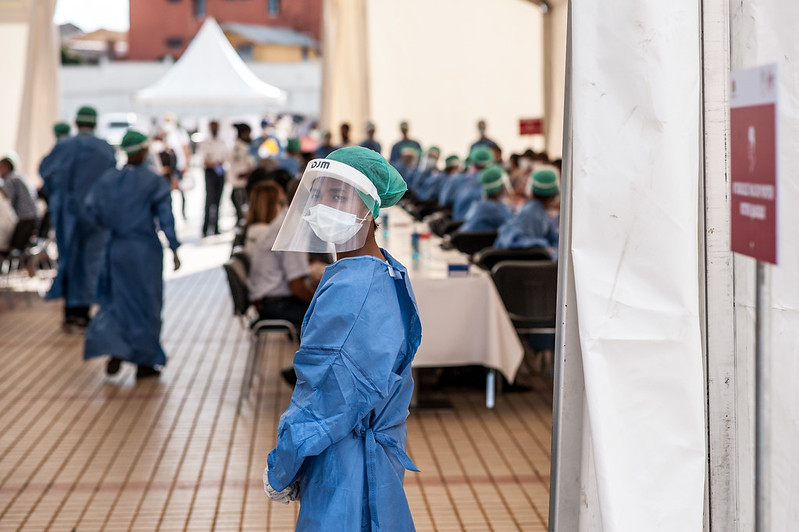5 Organizations Advancing Health Care in Madagascar
 Health care in Madagascar faces significant challenges due to a high poverty rate of more than 75%. The primary concerns are infectious diseases, malnutrition and the environment. Madagascar is currently in a malaria epidemic, particularly in rural coastal areas that experience flooding, which leads to an increase in the mosquito population.
Health care in Madagascar faces significant challenges due to a high poverty rate of more than 75%. The primary concerns are infectious diseases, malnutrition and the environment. Madagascar is currently in a malaria epidemic, particularly in rural coastal areas that experience flooding, which leads to an increase in the mosquito population.
Furthermore, approximately 1.31 million people in Madagascar face high levels of food insecurity and 40% of children face chronic malnutrition. This is often because of natural disasters such as droughts, hurricanes and floods, which negatively impact agriculture growth, increase food prices and loss of jobs, as 80% of the population’s primary source of income is agriculture. Despite these challenges, here are five organizations that are helping advance health care in Madagascar.
The Improved Nutritional Outcomes Project
This organization, established by the United Nations Children’s Fund (UNICEF), provides free health care to mothers and children in Ambositra, a rural area of Madagascar where the nearest health center is often two kilometers away or farther. It has hired 11,000 community health workers to provide care at community sites.
A community worker is a volunteer who promotes health in a village and monitors the health of pregnant, postpartum or breastfeeding mothers. They also track the health of children aged less than 5 by weighing, measuring and diagnosing malnutrition. Community workers also treat children diagnosed with malnutrition and mild diseases; however, in severe and more complicated cases, they transfer children to the nearest health center. The volunteers also promote nutrition education in the communities.
WHO Mobile Health Clinics
The World Health Organization (WHO) uses mobile clinics and epidemiologists to help provide free health care to remote areas. The mobile health clinics provide health services such as vaccinations, medications (for diarrheal diseases, malaria, cholera and more) and health kits. After the devastation of the 2022 hurricane season in Madagascar, the global charity built a storage warehouse for medication to help prevent a repeat of the disaster. It is helping strengthen the country’s preparedness in case of emergencies while simultaneously improving the primary health care structure of Madagascar.
PIVOT
PIVOT is a nongovernmental organization (NGO) that has partnered with Madagascar’s Ministry of Public Health to help improve the health care system in the Ifanadiana district. This charity aims to eventually scale up and provide universal health care to Madagascar and other countries. It works by collecting and analyzing data, identifying gaps in health care and implementing a science-based solution. It employs social workers, doctors, nurses, midwives and other health staff.
PIVOT started in the Ifanadiana district, home to more than 200,000 people and incredibly isolated by mountainous terrain. The nonprofit chose this location because of the more than doubled maternal and less than 5 mortality rates compared with the national estimate. The organization uses a data-driven strategy to create a resilient health care system that can address the community’s immediate needs while also building its long-term goal of gaining trust within a community that once viewed hospitals as where people went to die.
Since its start in 2014, it has brought universal health coverage to 95,000 people in seven communities. It continues to advocate for free universal health care, decent wages for health workers and science-focused solutions in Madagascar.
ACF or Action Against Hunger
This organization was started in 1979 as an international nongovernmental organization used to fight hunger. Currently, it is in Madagascar in response to the severe droughts and cyclones in the Southeast regions and the worsening nutritional and food situation in the Grand Sud. With the help of its partners, Action Contre la Faim (ACF) is implementing an emergency intervention and development strategy. This will include medical and malnutrition support, such as creating mobile health teams to address acute malnutrition, childhood illnesses, gender-based violence and psychosocial support.
The nonprofit will also rebuild the water supply and provide drinking water with tanker trucks. Next, it will provide 80,000 people with emergency food aid through cash transfers. Finally, agricultural recovery will be supported for next season’s harvest and a crisis exit strategy will be implemented to help anticipate crises like hurricanes and floods. At the same time, ACF is also doing multiple developmental programs to help support the health system, reducing chronic malnutrition in children aged less than 5 and enhancing food security in Madagascar. An example is the CONFLUENCES 2 Project, which supports the health system in the Atsimo-Andrefana region of Grand Sud.
CARE International
CARE International first arrived in Madagascar in 1992 to reduce poverty. One of its key programs focuses on the right to health. This program aims to enable 50 million people to exercise their right to health and dignity by 2030. It emphasizes building equitable and resilient health care systems that can resist and respond to shocks and crises.
CARE International takes an equity and rights-based approach to advancing health systems by collaborating with community groups, leaders and health authorities. It emphasizes supporting marginalized groups, increasing access to quality health care in Madagascar and being prepared to respond to public health emergencies.
CARE International also promotes vaccinations with its Fast and Fair Vaccine campaign. It has successfully vaccinated 126 million people while informing 263 million people about accurate vaccination information.
Conclusion
Madagascar’s health care system still faces significant challenges in achieving affordable and effective medical services, yet the efforts of these five organizations could one day enable health care in Madagascar to provide accessible and high-quality medical care to all its citizens.
– Gabrielle Schwartz
Gabrielle is based in Pembroke Pines, FL, USA and focuses on Global Health for The Borgen Project.
Photo: Flickr
